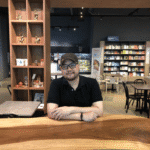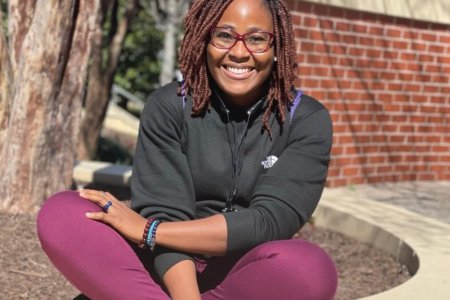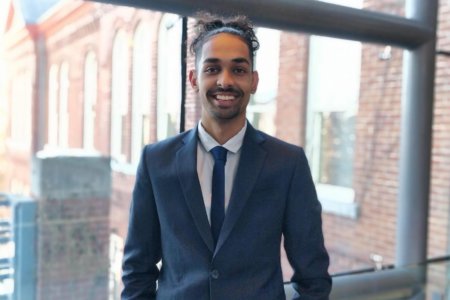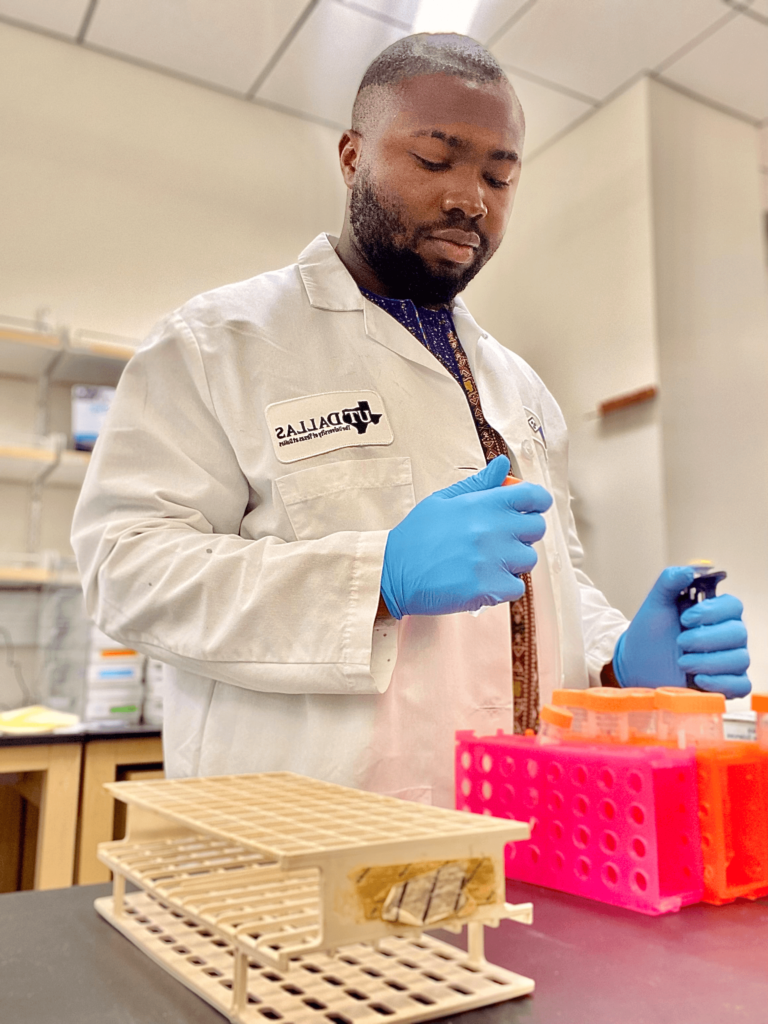
Muneer Yaqub is living his dreams at the University of Texas at Dallas (UT Dallas), but knows the struggle of getting there all too well. The Nigerian student, who is doing his PhD in the US, has become quite the social media phenomenon, with over 23,000 followers on Twitter alone.
The cause? Yaqub is dispensing sage advice on university and graduate school applications on the social media platform for African students, often garnering hundreds of likes and retweets with one post.
“Earlier in January, it just blew up and I got a lot of followers there,” said an astonished Yaqub, who didn’t expect his posts would garner the level of attention they currently enjoy. “I’m just surprised that each day, I just keep getting more and more followers. To think that on Dec. 29, 2021 I just had 2500 followers!”
Succinct but informative, Yaqub’s advice is much-needed by students from his home country, whose study abroad dreams are often hampered by financial and bureaucratic obstacles. We caught up with Yaqub on his journey, and his impetus to devote his time and energy to helping others on social media:
Tell us a little bit about your background and your journey of doing a PhD at UT Dallas.
I completed all my prior education in Nigeria and graduated in 2019. It was during the pandemic that I started looking out for opportunities and asking questions about furthering my education abroad. I’ve always wanted to pursue education at a higher international standard, which we are lacking where I come from.
At the same time, I also looked for ways to finance my education as I didn’t have the means to do so on my own. It was either a fully-funded scholarship or nothing. I started putting in my application at UT Dallas, and I was given admission after a few weeks. As it was during the pandemic, my first semester was online; I only got here in 2021. I’ve been in the US for about a year now.
I’m currently doing my PhD in Molecular and Cell Biology, focusing on antibiotics as my main research.
Were you always interested in this field, or did you ever consider studying something else?
Back in my undergraduate studies, I majored in Microbiology – we didn’t have the resources where I come from to do further research. If you want to do cutting-edge research in molecular biology, it has to be somewhere in Western universities.
Since arriving in the US, I have met other Nigerians in my field — I know about three who are in my programme. We have a group chat of Nigerian students who are doing their PhD in my school in various fields such as Chemistry, Statistics, Mathematics, and Biology. We have many who are coming here, so the word is spreading.
What was your own experience of applying to a PhD programme in the US?
Interestingly, I was able to connect with online communities through WhatsApp and Telegram groups, where I found like-minded people who were seeking similar opportunities. That really helped me in terms of getting information, as there are many involved in the application process. Leaving one crucial piece of information out could mean losing your chance of winning an admission.
When I applied, I had just graduated from my previous degree, and it was during the pandemic. I was supposed to take the GRE (Graduate Record Examinations) and TOEFL (Test of English as a Foreign Language) tests, but the examination centres were closed due to lockdowns.
I emailed UT Dallas, asking them about admission. I was told that internally, they were still taking applications if I was willing to apply at the time, even though the deadline had passed. I only had two weeks to put everything together, including writing my statement of purpose and reaching out to my professors for recommendation letters. Knowing my situation with the lockdown, the university waived my GRE and TOEFL requirements.
I was preparing to apply to other schools too, but then the admission from UT Dallas came in. I applied to just one school, and I got it! I am fully-funded under my programme.
When did you start giving scholarship and graduate school application tips on social media?
I used to be active on LinkedIn, so I started out there in 2020. I felt the need to pass on what I went through to others, because one of the things I learned throughout my application was that people didn’t know they could get fully-funded scholarships just by applying to schools.
Some of the people I encountered even thought that scholarships were only for students who were the highest in class. There were all kinds of misconceptions about getting a scholarship, and I felt the need to address that.
Afterwards, I decided to expand it through email newsletters, but I couldn’t keep up with that due to graduate school. I also opened a Telegram and WhatsApp group to guide students with scholarships. Eventually, I felt the need to move it to Twitter as there are many people using the platform.
I’ve only been on Twitter for about a year, but earlier in January, it just blew up! So that’s the power of social media — I am getting new followers every day. I’m glad it works, and that word is getting out.
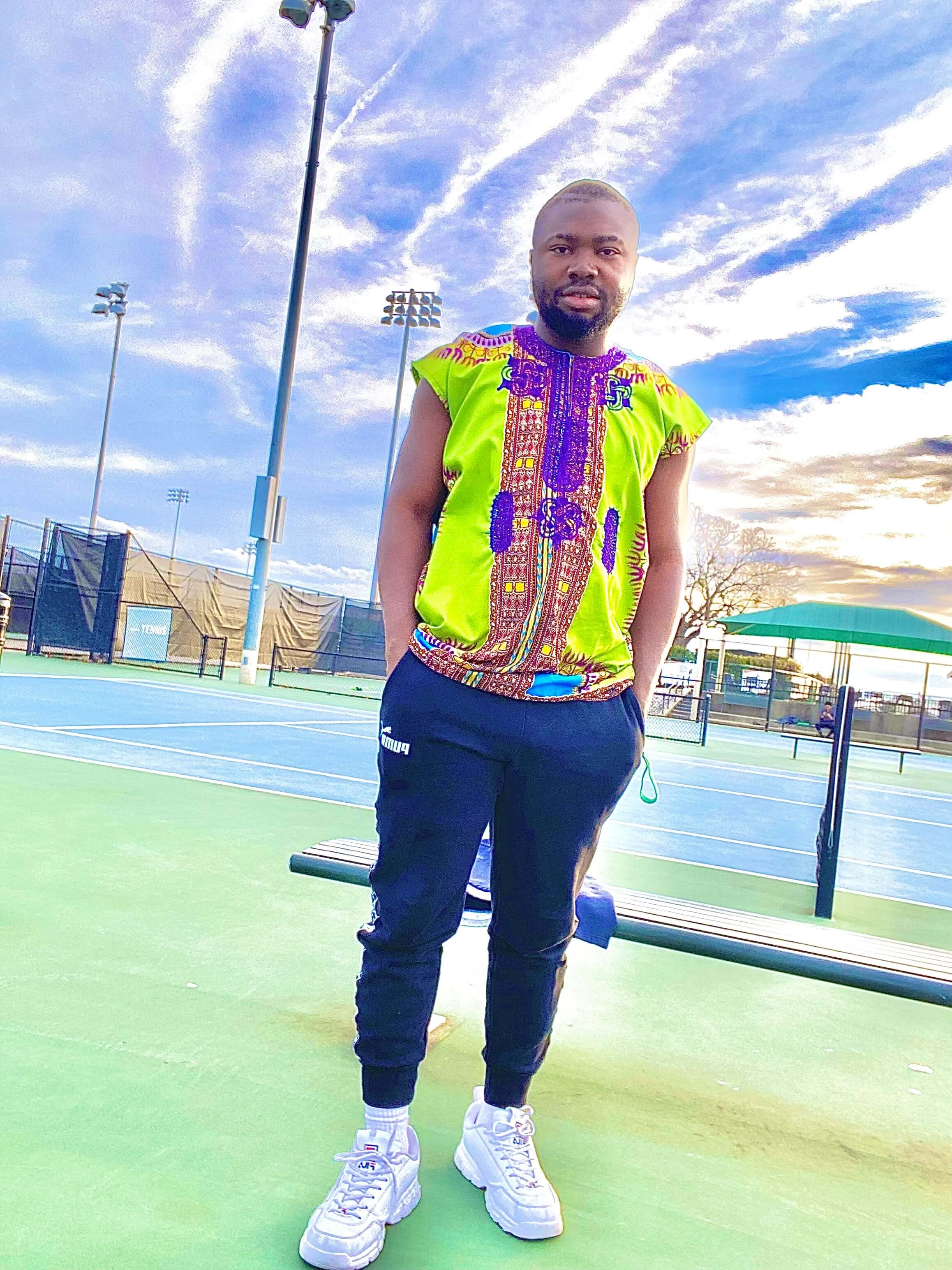
“There were all kinds of misconceptions about getting a scholarship, and I felt the need to address that,” says Yaqub, who often gets hundreds of engagement on his Twitter posts. Source: Muneer Yaqub
There’s a growing online community of students giving advice on Twitter. Do you think the reason it works is because in-person services and agencies aren’t as effective?
For those of us who went through the whole application process, we felt that people back home needed to know more. When we did get the information we needed, we’d say, “I was lucky to have someone to guide me through this.” But students shouldn’t be lucky to find out about scholarships abroad. This kind of information should already be accessible to them, even at the undergraduate level.
There’s also a growing disconnect between education and employment, especially coming from the fact that we’re a developing country. Many are getting tired of education, because they end up doing jobs that are not feeding them enough.
However, someone out there is willing to pay off your tuition fees and pay you a stipend just by going to school. We went through the process successfully, and we just want people to know that’s an option and not lose interest in education.
There are also individuals and organisations who are willing to help with student finances. Recently, a Nigerian student who received a scholarship to study abroad needed extra money to afford his flight tickets. He went on Twitter to ask for help and was able to get his finances sorted out from donations by others. If you really want to further your education, people are willing to help.
What other kinds of challenges do Nigerian students face in wanting to pursue an education in the US?
Well, it’s one thing to secure an admission. Getting a visa is another hurdle for many of us because you need to prove that you’re not going to run away or work once you arrive in the US as a student. Many genuine students can be easily denied a visa; some have lost opportunities just because of stringent visa policies.
There’s also a lot of money involved in getting a visa. On top of the usual fees, we also must pay a “reciprocity fee”, which applies to citizens of certain countries. The total is very costly for students from developing countries. Students have resorted to borrowing money from others to apply for a visa, promising to pay the sum back once they arrive in the US. Yet, some don’t even get a visa after borrowing money for the application.
Lastly, do you see yourself continuing what you’re doing on Twitter in the future? What advice would you give for international students looking to study abroad?
Mentorship is one of the things I do to take a step back and unwind as a PhD student. So I’m going to continue giving advice to students who need it on my social media channels.
To international students: prepare yourself. The education system abroad is rigorous, and you’re already shortchanged by the lack of resources back home. For example, when I came here, I was getting to see some of the equipment for the first time. You might feel a bit of impostor syndrome kicking in, so you need to watch out for that. Read some books in your field so you can get up to speed on the things you didn’t have access to back home.






